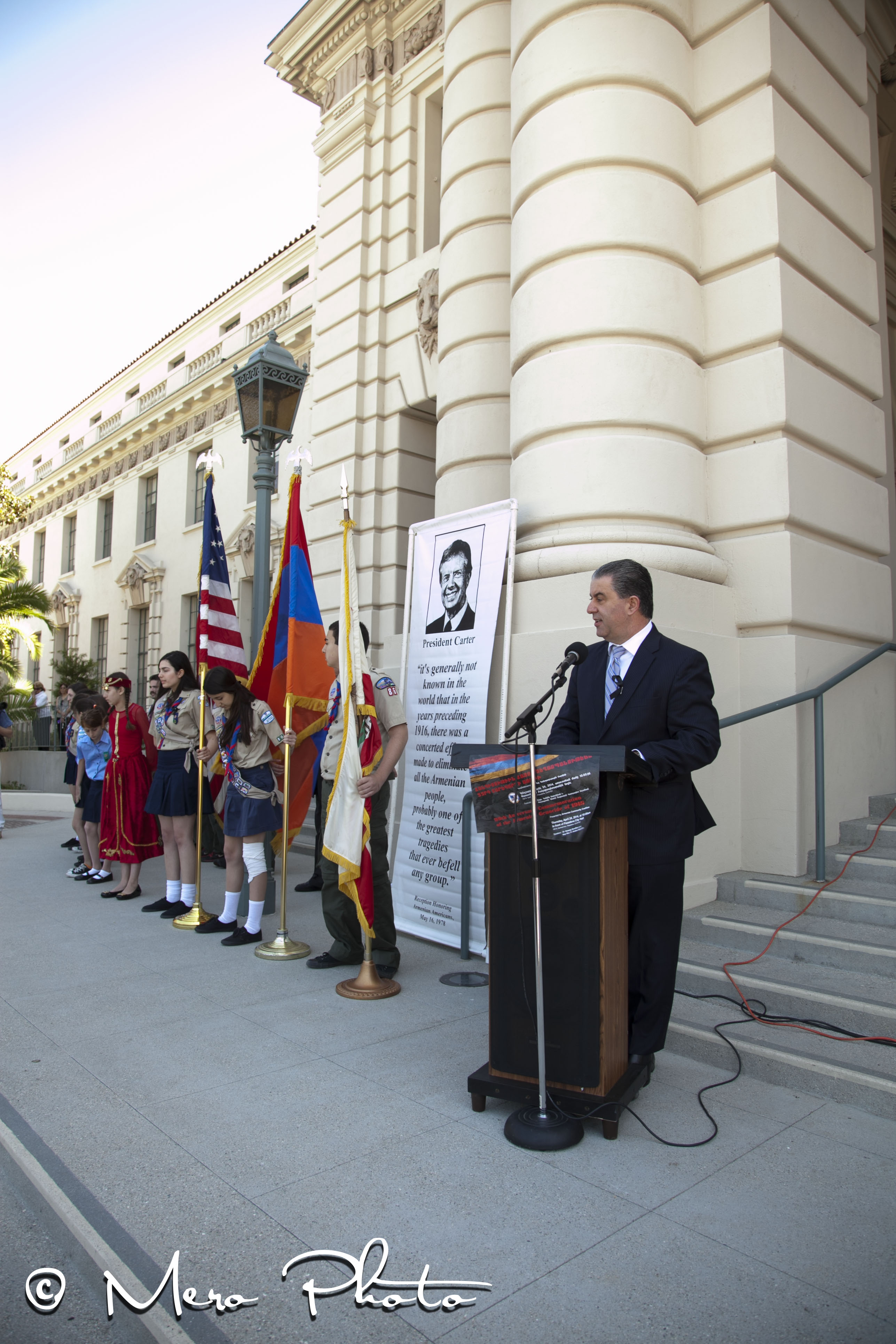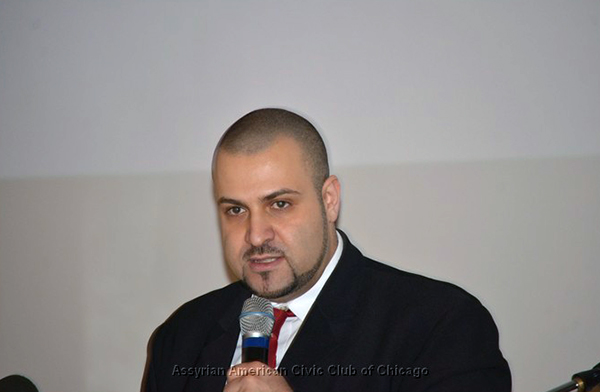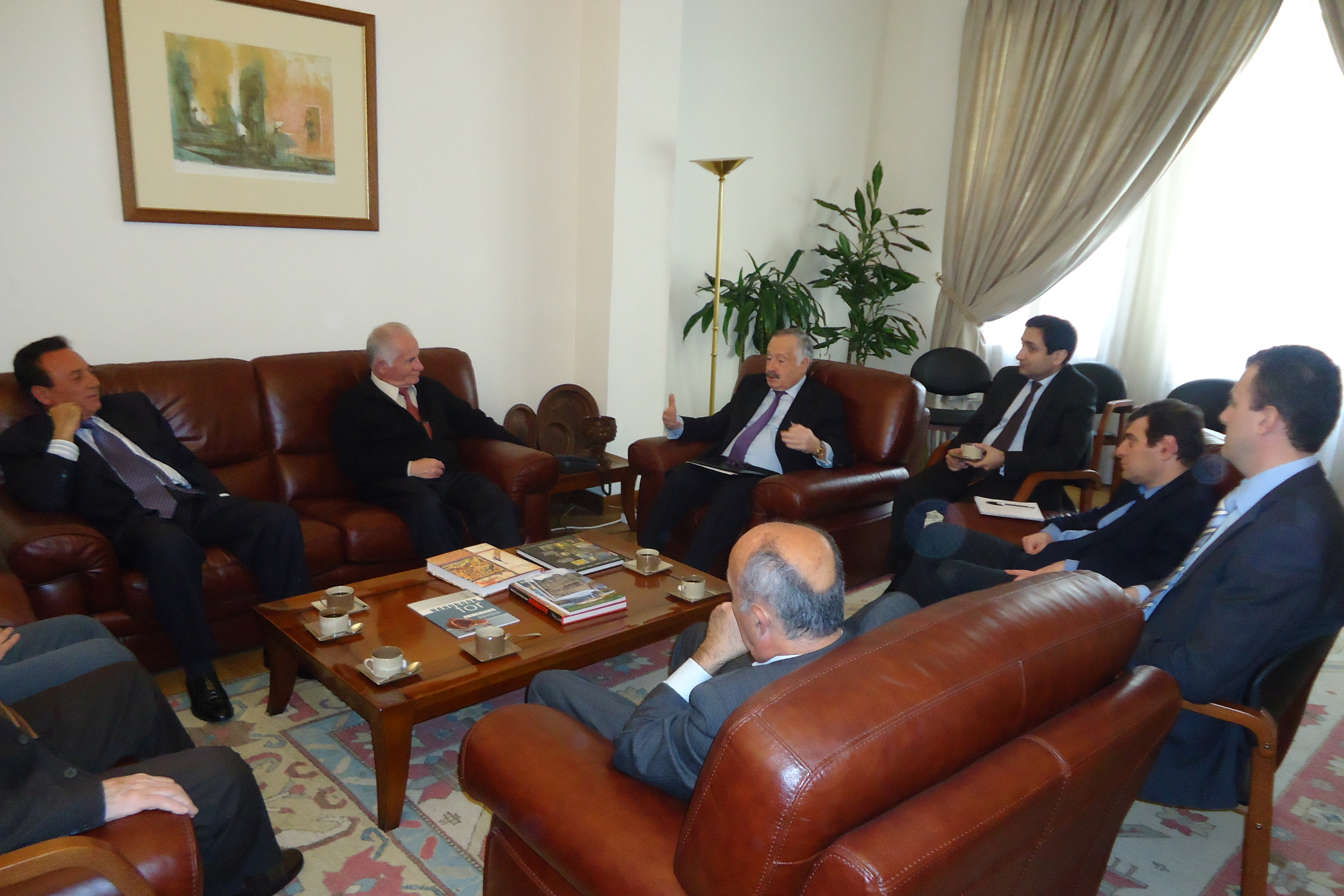Dr. Harry Sarafian, Social Democrat Hunchakian Party Central Committee Secretary, took part in commemorating the 99th anniversary of the Armenian Genocide in Pasadena California. The following is his speech in its entirety:
As Armenians across the globe commemorate the 99th anniversary of the Armenian Genocide, I am sure each and every one of us has their sights set on April 24, 2015, the centennial of the first Genocide of the 20th century. Confidentially, that date also represents the 50th anniversary of the day when the Armenian nation refused to continue to be the sorrowful and grief-stricken group of people who simply mourned the victims of the genocide and instead embarked upon the quest for worldwide recognition of the Armenian Genocide and restoration of justice.
Indeed, the past five decades have been a mixture of achievements and disappointments. To date, 21 countries have formally recognized the Armenian Genocide and here in the US, 43 states have passed resolutions or issued proclamations in reference to the Genocide. Unfortunately, year after year, facing immense pressure and relenting to threats made by the Turkish government, every president since Ronald Reagan in 1981 when issuing a statement on April 24th has danced around the word genocide by using every available euphemism in the English dictionary. This year was no exception and as citizens of this great country of ours we are disappointed that our own government cannot muster the courage to do the right thing and once and for all recognize the Armenian genocide.
As we look ahead to the centennial anniversary and beyond, we realize that there is much work left to be done. While we have succeeded in making the Armenian Genocide an internationally accepted fact, successive Turkish governments have not only steadfastly denied the genocide but also have led a shameful campaign of distortion, obfuscation and outright lies cleansing their history books of any reference to the darkest passages of their recent history or turning the facts upside down by making the victim into a villain. In the past decade, any brave soul who dared to question the official version of events, most prominently our beloved Hrant Dink, was charged with the infamous article 301 of the Turkish penal code for “insulting Turkishness”.
More recently, the Turkish government seems to have adopted a new approach regarding the genocide issue. During his visit to Yerevan in December of last year, the Turkish foreign minister Ahmet Davutoglu called the deportation of the Armenians in 1915 as inhumane. Had he stopped there, it would have been considered a tiny step forward. Unfortunately he went on to say that Armenians in their “collective consciousness” had mischaracterized the deportations as genocide, thus rendering his whole statement meaningless.
Yesterday, the prime minister of Turkey Recep Tayyip Erdogan issued a statement offering condolences to the grandchildren of Armenians who, in his words, lost their lives “in the context of the early twentieth century” implying that Armenians were not systematically massacred but were just casualties of WW I just like other citizens of the Ottoman Empire. This woefully inadequate and misleading statement once again shows that the Turkish government is far from being ready to honestly confront its own history and is nothing more than a reaffirmation of the Turkish policy of denial presented in a more nuanced way. Their calls for reconciliation and dialogue sound hollow when they have unilaterally sealed their border with Armenia and continue to deny the Genocide.
Neither Mr. Erdogan nor Mr. Davutoglu seem to realize that the time for half truths and distorted facts has passed. It is indeed a shame that instead of using both occasions to make meaningful and constructive statements, they chose to engage in pure demagoguery.
As we approach the centennial, we need to be mindful of the challenges that lie ahead.
In our pursuit of Genocide recognition we have spent enormous amount of time and resources and yet have done little toward establishing the legal framework upon which our demands for compensation and reparation will be based. Recognition by Turkey without reparation will be meaningless. The Turkish government is well aware of this and that is why it is doing everything in its power to keep us stuck at the recognition phase. I believe the time has come to get beyond recognition and start work on the next phase, which will require far more extensive resources and expertise.
Also, it is imperative that there be a better coordination and cooperation between the Republic of Armenia and the Diaspora. The priorities and the roles have to be clearly defined so that we do not find ourselves in the same quandary as we did in 2009 when the protocols were negotiated and signed without any input from the Diaspora.
Although our task in enormous and the challenge is great we remain optimistic and resolute, because despite the passage of time, the fading memories and only a handful of Genocide survivors remaining, the struggle for the Armenian Cause has been ingrained in our nation’s DNA and is seamlessly passing from one generation to the other, thus giving us hope to believe that our future generations will carry on with the fight until justice prevails.










